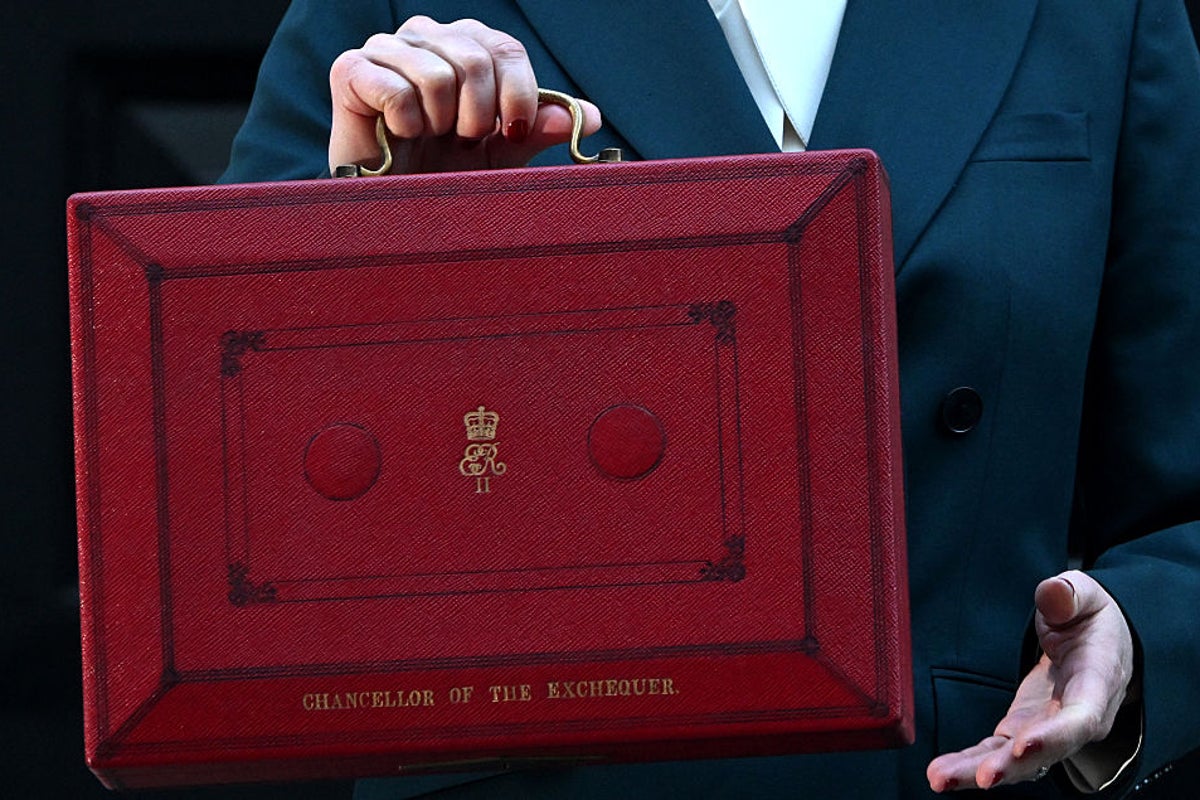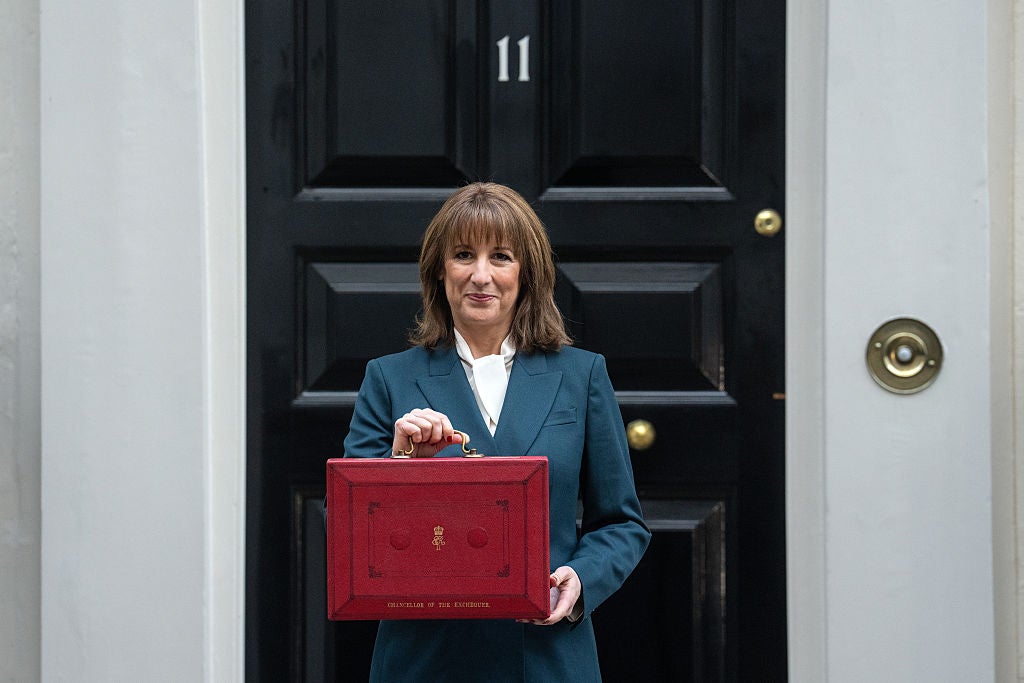
An extraordinary Budget day saw the details of Rachel Reeves’ new policies published too early, before she unveiled a swathe of £26bn tax rises and a raft of changes.
So, from ISA limits to freezing income tax thresholds, how do the main changes around personal finances affect you - and who were the winners and losers from the big decisions?
The Independent takes a look:
Winners
Pensioners
We expected a cut to the cash ISA and it duly arrived. A maximum of £12,000 will be able to be put into the tax-free savings accounts, down from £20,000. The remaining £8,000, the chancellor said, is to be reserved for investing products like stocks and shares ISAs.
However, there’s an exception within the change. Over 65s will be able to still save the full £20,000 in cash if they wish.
This is an important win, as investing is generally more suited for those with longer timeframes, and older people are generally advised to consider de-risking their wealth, which cash savings allow them to do.
Motorists
Ms Reeves announced an extension to the temporary 5p fuel duty cut until September next year. A fuel duty freeze is a positive for everyone who drives petrol cars, naturally.
However, as Creditspring finance expert Tamsin Powell points out, it’s not just drivers who benefit here - it’s all consumers, due to cost increases typically being passed on in things we buy.
“Rising fuel costs don’t just affect drivers, they also push up the price of goods and services, from food deliveries to public transport,” she said. “A rise would have particularly hurt those in rural areas or people who rely on cars to commute.
“At a time when many are still struggling with high energy bills and stagnant wages, keeping fuel duty low is one of the simplest ways to prevent additional financial strain.”
Importantly, then, this fuel duty freeze should contribute to overall lower inflation across 2026 and beyond.
Some families
The abolition of the two-child benefit cap will help more than half a million families, according to the OBR, to the tune of an average £5,310.
The measure, to ease child poverty, will be warmly welcomed by Labour MPs but will cost £3 billion a year by 2029/30.
Basic-rate taxpayers
The National Living Wage has gone up to £12.71 for those aged 21 and over, meaning a full time worker would benefit in gross earnings by £900 annually.
Similarly, the National Minimum Wage increase for 18-20 year olds to £10.85 means a full-time worker would earn £1,500 more across a year.
Clutching at straws here perhaps, but there had been talk of changes to income tax rates - instead they stay the same.
That’s a boost to those who might have feared a lower take-home pay. But it will hit some people harder (more on that later).
Another potential additional win for basic-rate taxpayers comes in the form of changes to salary sacrifice rules. Contributions above an annual £2,000 threshold will no longer be exempt from national insurance from April 2029.
But those paying 5 per cent of a £40,000 salary into a pension on salary sacrifice will not cross the forthcoming £2,000 threshold at which point National Insurance payments would come into play, so there would be no immediate loss there.
Losers
Middle earners
Income tax bands are to be frozen through to 2030-31, meaning anyone on a salary of £45,000 now and getting a 4 per cent raise - that’s lower than this year’s salary growth rate, remember - across the next three years would be dragged into the threshold and become a higher-rate taxpayer, while doing the same job.
The move, one of Ms Reeves’ most controversial, is expected to drag close to one million people into the higher rate band by the end of that period.
Ms Reeves acknowledged the freeze in tax thresholds would hit “working people” – the group Labour had promised to protect – but she was “asking everyone to make a contribution”.
Cash savers
There’s a possible hit at both ends of the scales here: old and young, small amounts and large.

Pensioners, for example, who receive a full state pension will, from next year, be just under the threshold at which income tax becomes payable - so any reasonably small additional income earned will push them into tax brackets.
With the cut to cash ISA limits for under-65s, those who continue to save larger amounts in non-ISA savings accounts could find themselves taxed on the interest.
An unexpected increase to savings tax, however, puts the rates out of kilter with normal income tax rates - it’s up two percentage points so 22 per cent for basic taxpayers, 42 per cent and 47 per cent for higher and additional rate payers.
“The reduction in the cash ISA limit will cost a higher rate taxpayer over £140 in income tax, assuming an interest rate of 4.5 per cent and no personal savings allowance,” explained Blick Rothenberg’s tax expert Chantal Van Stipriaan.
Pension savers
There’s time to sort this out as it doesn’t come into play until 2029, but salary sacrifices above £2,000 annually will now be subject to National Insurance.
Here’s a full run-down on how it will work.
Fidelity analysis shows someone on a £60,000 salary and a standard 5 per cent contribution, plus 3 per cent from their employer, would put them £1,000 over the cap - so NI would be charged on that portion. It would mean an extra bill for the employee of £20.
Self-employed
Dividend tax being raised means it’s more costly to pay yourself from a business you own, if you do so through dividends rather than salary - a frequent method for those who run small firms.
A two percentage points increase means a basic rate payer will now be charged 10.75 per cent dividend tax, with higher rate payers now due to pay 35.75 per cent.
The vexing part for owners who pay themselves this way is they’ve already paid corporation tax on those profits and the dividend allowance itself has been repeatedly cut too.
Landlords
An increase to income from properties is going to impact landlords initially, but there are wider fears around the property market.
One option is landlords continuing to sell up, lowering availability of properties for rent (which drives up prices if demand is still the same). Another option is landlords pass on the increase in their costs to tenants (which also risks driving up prices).
“Ultimately, the additional tax revenue is relatively modest, and the long-term impact is likely to fall not on landlords, but on the very people who rely on the rental sector for affordable housing,” said Craig Hughes, partner at advisory firm Menzies LLP.
High-end property owners
The mansion tax will see homeowners hit with annual bills depending on the value of their property. The “high value council tax surcharge” is £2,500 for properties in England worth more than £2 million, rising to £7,500 for those worth more than £5 million.
The move has several possible outcomes beyond the actual payment.
One is lower valuations coming through, another is a flood of them on the market if those with property but little liquid assets believe ownership will cause them financial issues. And another is widespread inertia in the property market as people grapple with the new rules in wait and see mode - effectively doing nothing until more clarity is forthcoming.
Motorists (EV owners)
Those who own electric vehicles can perhaps be forgiven for being annoyed. After years of being told this was the future and the right thing to do, they will now be taxed for driving anywhere at all.
If you drive 10,000 miles a year, that’s £300 tax.
John Murray, head of EVs at LCP Delta, criticised the move. “The government’s decision to introduce a £0.03-per-mile tax for EV drivers poses a serious risk to the industry. At the very moment when clarity and commitment are needed to accelerate the transition, EV drivers are being sent mixed signals,” he said.
Everything you need to know about Air Passenger Duty – and how to get a refund
Everything you need to know about Air Passenger Duty – and how to get a refund
Campaigners and Labour MPs hail Rachel Reeves’ decision to scrap two-child limit
‘A kick in the teeth’: Readers say Reeves’ Budget ‘punishes responsibility’
Join a Budget Q&A with money expert Gabriel Nussbaum
Your cash ISA options after Budget cut – and the exemption you need to know about







